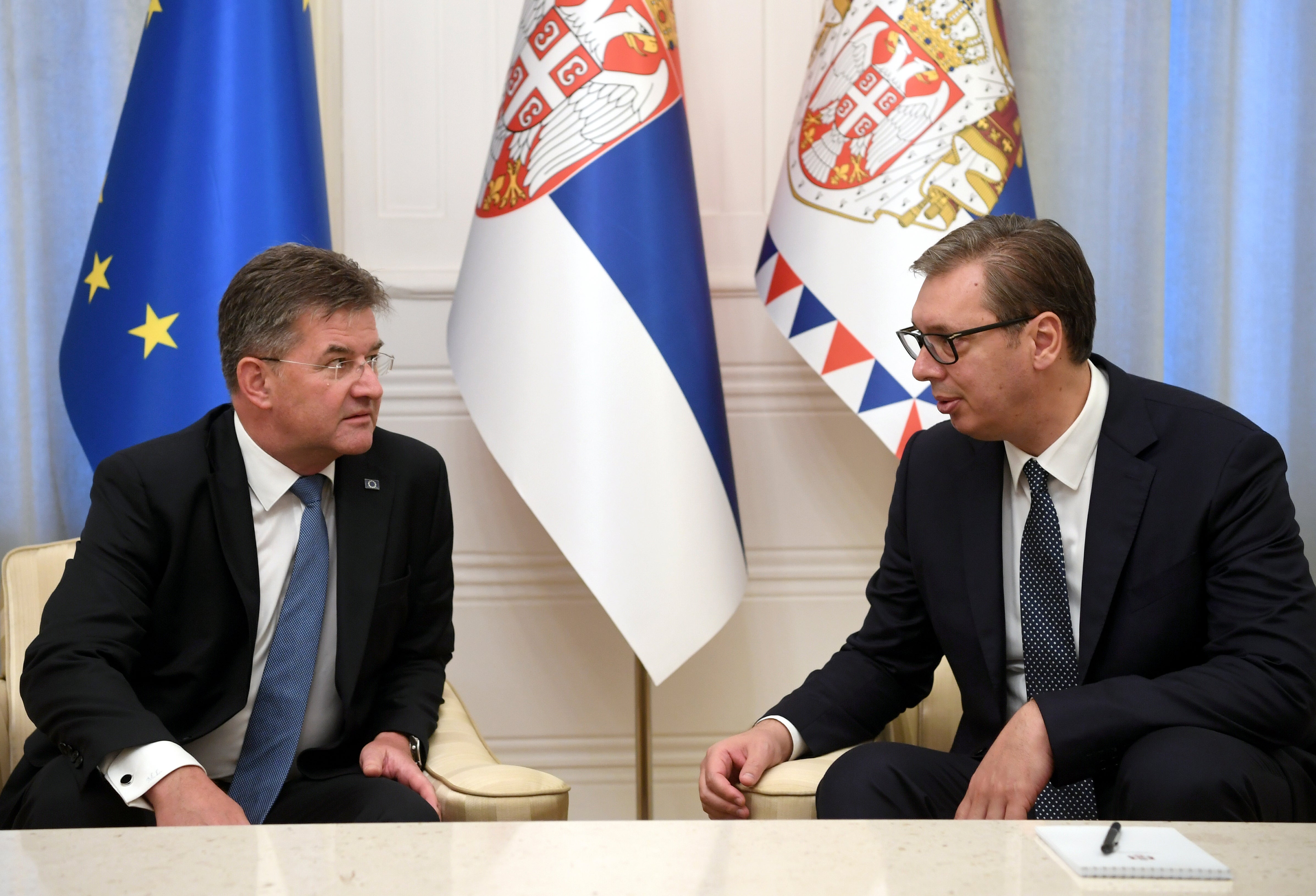EU official says Serbia, Kosovo agree on IDs in step forward
The European Union's foreign policy chief says Serbia and Kosovo have agreed on how to resolve a dispute over identity documents

Your support helps us to tell the story
From reproductive rights to climate change to Big Tech, The Independent is on the ground when the story is developing. Whether it's investigating the financials of Elon Musk's pro-Trump PAC or producing our latest documentary, 'The A Word', which shines a light on the American women fighting for reproductive rights, we know how important it is to parse out the facts from the messaging.
At such a critical moment in US history, we need reporters on the ground. Your donation allows us to keep sending journalists to speak to both sides of the story.
The Independent is trusted by Americans across the entire political spectrum. And unlike many other quality news outlets, we choose not to lock Americans out of our reporting and analysis with paywalls. We believe quality journalism should be available to everyone, paid for by those who can afford it.
Your support makes all the difference.The European Union's foreign policy chief announced Saturday that Serbia and Kosovo have agreed on how to resolve a dispute over their identity documents, settling one of the problems that have sparked the latest tensions between the former Balkan war foes.
The comments by Josep Borell come after a flurry of international diplomatic efforts to defuse concerns that the problems could escalate further amid the war in Ukraine and Serbia's close ties with Russia.
Kosovo declared independence from Serbia in 2008, which Belgrade does not recognize.
Tensions soared late last month when Kosovo’s government declared that Serb-issued identity documents and vehicle license plates would no longer be valid in Kosovo’s territory, just as Kosovo-issued ones are not valid in Serbia. Serbia in the past years required Kosovo ID holders to acquire special passes when traveling through Serbia to show it does not recognize Kosovo's independence.
Kosovo said it was responding with reciprocity to Serbia. But Kosovo Serbs reacted furiously, blocking roads in the Serb-dominated north. Belgrade accused Kosovo of pressuring minority Serbs in the north, who largely reject Kosovo-issued documents in defiance of Kosovo's statehood and hold Serbian ones.
In the past two weeks, EU officials mediated a meeting between Serbian President Aleksandar Vucic and Kosovo Prime Minister Albin Kurti in Brussels, and U.S. and EU envoys traveled to the region to try to resolve the issue.
“We have a deal,” Borrell said on Twitter. "Serbia agreed to abolish entry/exit documents for Kosovo ID holders and Kosovo agreed to not introduce them for Serbian ID holders.”
“Kosovo Serbs, as well as all other citizens, will be able to travel freely between Kosovo & Serbia using their ID cards," he added.
Kosovo President Vlosa Osmani said on Facebook that the deal meant “reciprocity and equality.”
“Freedom of movement is the foundation of democratic societies and European values," she said, adding that Kosovo will continue to strive for “mutual recognition."
Earlier Saturday, Vucic told reporters that if the ID deal is reached, Serbia will issue a “general disclaimer” on the boundary, saying the use of Kosovo ID cards is enabled for “practical reasons and freedom of movement," and does not mean Serbia's recognition of Kosovo or its future status.
However, he said the Serbian car registration plates that many Kosovo Serbs still use remains an unresolved issue.
Kosovo’s independence has been recognized by Washington and most EU countries, while Serbia has relied on support from Moscow and China for its bid to retain the former province. Belgrade lost control over Kosovo in 1999 after NATO bombed the country to stop its brutal crackdown against ethnic Albanian separatist rebels.
For several years, the EU has mediated negotiations between Kosovo and Serbia, seeking to normalize their relations and move forward their efforts to join the European Union.
NATO peacekeepers have stepped up their presence in northern Kosovo in response to the increased tensions.